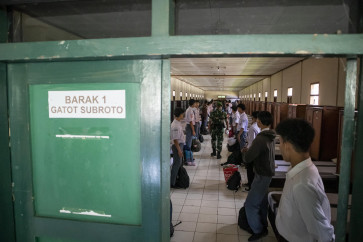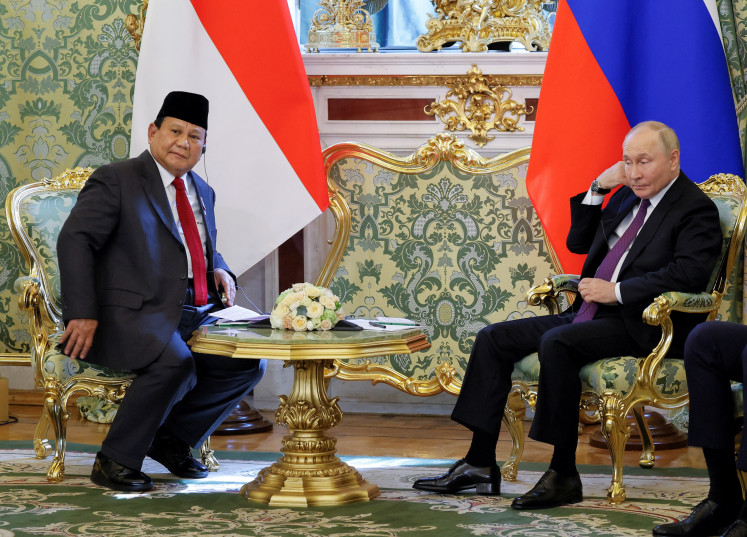Human resources mobility in store for ASEAN
A number of high-ranking education officials from Southeast Asian countries gathered Thursday in Jakarta to discuss steps to inch the region's diverse education system into harmony, which may enable higher mobility for the region's students and workers
Change text size
Gift Premium Articles
to Anyone

A
number of high-ranking education officials from Southeast Asian countries gathered Thursday in Jakarta to discuss steps to inch the region's diverse education system into harmony, which may enable higher mobility for the region's students and workers.
The officials are from countries under the Southeast Asian Ministers of Education Organization (SMEAO), established in 1965.
Thursday's meeting was specifically the agenda of SMEAO's regional center for higher education (SMEAO Rihed), located in Bangkok, Thailand.
Fasli Jalal, Indonesia's directorate general for higher education, revealed several agendas to be discussed at the meeting, which will continue until Friday.
"The first is student mobility, then degree harmonization, so that students can study anywhere, ensured by quality assurance and accreditation," Fasli said. "The third is *about* e-learning, and the fourth is university governance."
According to Fasli, enhancing student's mobility will allow a university student's credit points and grades obtained at other universities in the Southeast Asian region to transfer to a home university.
"It is beneficial for Indonesian university students if they can study in many countries, with recognized credit transfer," he said.
This year, three countries: Indonesia, Malaysia and Thailand, have agreed to participate in a pilot project on the credit transfer program. Five subjects have been included in the cooperation: agriculture, tourism, language and culture, food technology and international business.
"This is the direction of the future of the entire ASEAN region. We want to develop equal opportunity in higher education," Sumate Yamnoon, secretary-general for Thailand's commission on higher education, said.
The countries are also planning to discuss degree recognition, providing the universities' quality in the regions has been assured.
"The system is currently not in complete harmony. Some *universities* have 120 credit points, some 150, thus the leveling time is halted from time to time," Fasli said. "The 10 ASEAN countries, including East Timor, are gradually arranging for degree recognition *across universities*." He added that the universities providing those degrees should be accredited.









